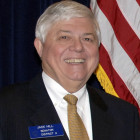
Michigan Arrest Raises Questions About Definition of Child Porn
|
Today, anyone can create a video and post it on the Internet for millions to see. But law enforcement and the courts are struggling to keep up with the innovations. In Michigan, a 21-year-old musician Evan Emory has been charged with creating and distributing child pornography after he edited a video to make it look like an audience of children was listening to him sing a song with sexually explicit lyrics. He than posted the video on YouTube. If convicted, Emory could face 20 years in jail and be forced to join the sex offender registry. The first-graders were filmed while Emory performed children’s songs at the local elementary school. After the children left, Emory taped himself singing the racy song. He later cut the two together. The video included a disclaimer the children, who were readily identifiable, were not present during the performance of the song. According to a story in The New York Times, reactions to the video and Emory’s arrest have been split. Many do not believe it could be considered child pornography, although most feel the video was in poor taste. JJIE.org recently covered another case involving the digital manipulation of children’s images. The Second Court of Appeals, in New York, upheld the conviction of a man who pasted the faces of underage girls on the naked bodies of adults.








